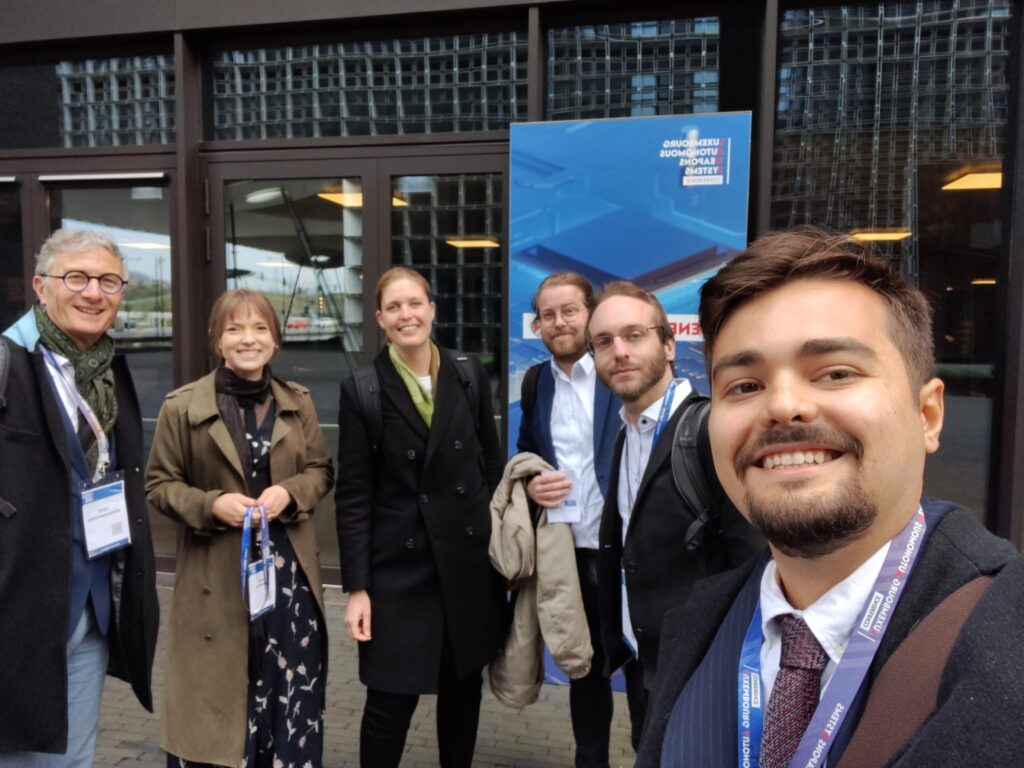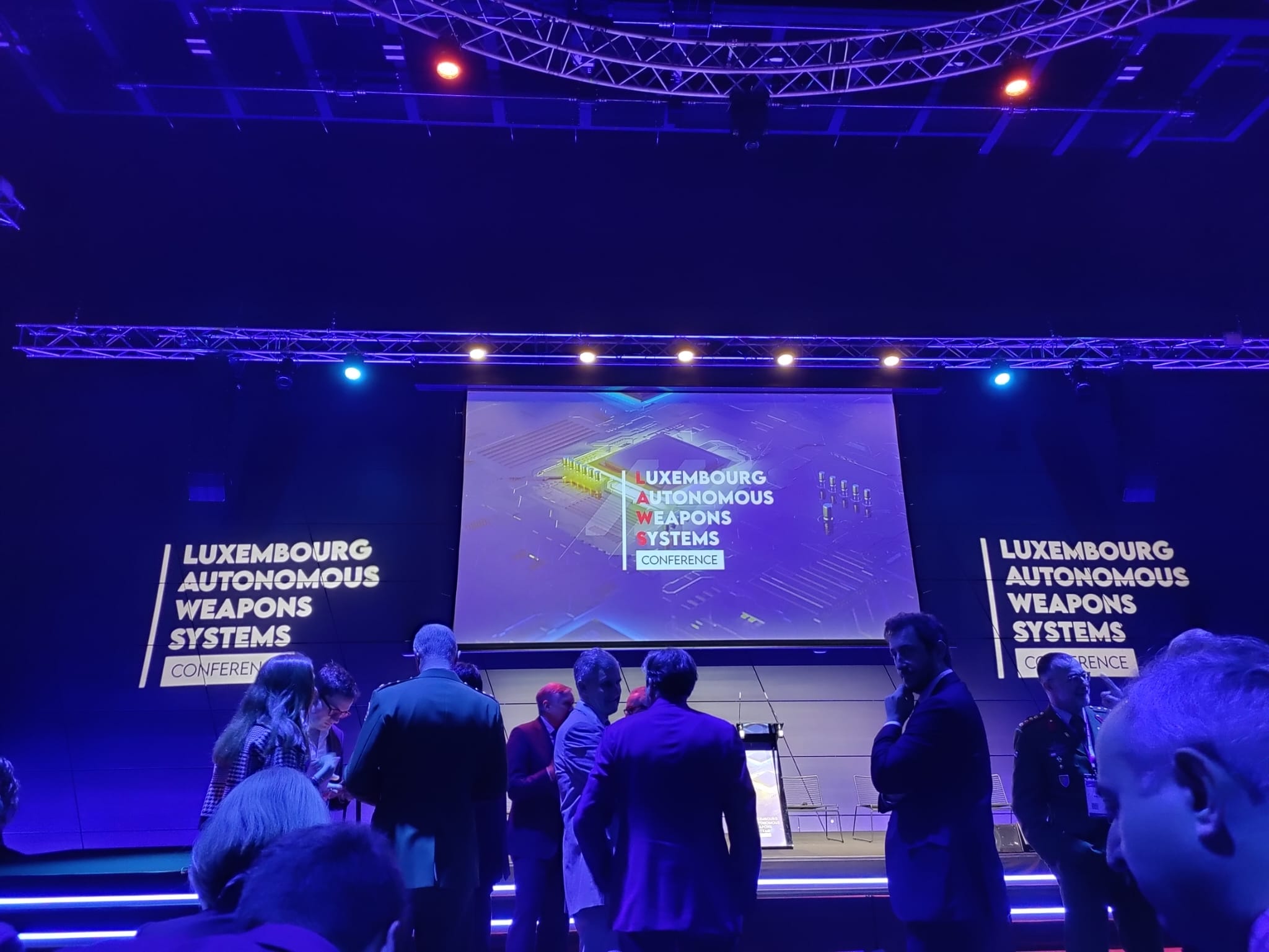The main expert panel conjured the spirit of Belén to point out the need for a legally binding instrument with meaningful human control
Members from the military institutions, private sector, field experts and organized civil society gathered in the south of Luxembourg in late April to discuss the regulation of autonomous weapons systems during the Luxembourg Autonomous Weapons Systems Conference. The initiative was organized by Luxembourg’s Directorate of Defense from the Ministry of Foreign and European Affairs.
The proactive stance of the Luxembourgish government has helped further the debate on the regulation of lethal autonomous weapons systems. The understanding that the lengthy procedures that policymaking requires – especially when requiring consensus from 126 different states, such is the case of the United Nations Convention on Certain Conventional Weapons (CCW) – are now gaining more traction and attention from the international community, not only with the Luxembourg conference, but also the conference in San José, Costa Rica, that led to a consensual document ratified by 33 countries, the Belén Communiqué, and the following five working papers presented at the CCW in march.
The event also brought the opportunity to fulfill the necessity to include other stakeholders in the conversation, such as the private sector and technicians.

As a member of the Stop Killer Robots campaign, the InterAgency Institute, represented by research affiliate Luís Campini Farias, engaged in meaningful dialoguing with different stakeholders and delivered a comprehensive report of the debate from the conference.
Share this content:
